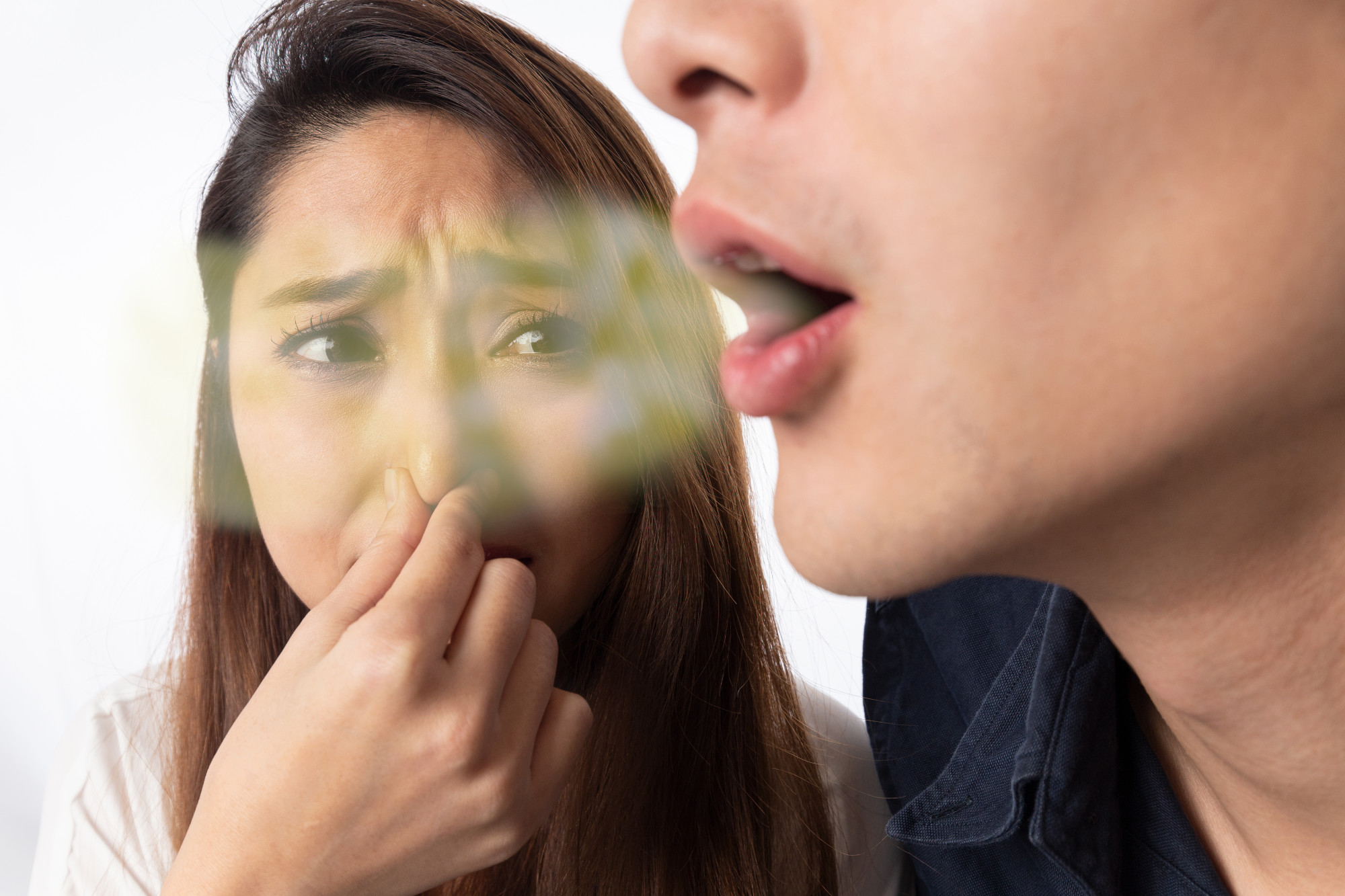
How to Get Rid of Bad Breath and How to Find the Cause
According to research, between 22% and 50% of people worldwide suffer from halitosis. Bad breath is an unpleasant affliction that can negatively affect self-esteem and our relationships.
The bad news is that persistent bad breath can be a sign of more serious issues. The good news is that it’s almost always treatable.
If you’re wondering what causes bad breath and how to get rid of bad breath once and for all, keep reading.
What Can Cause Bad Breath?
Temporary halitosis may stem from eating foods like garlic, excessive alcohol consumption, or a dry mouth after sleep.
It’s usually easy to remedy this type of halitosis by brushing and flossing your teeth and rinsing your mouth with mouthwash.
Be warned that strong-smelling foods like garlic can affect your breath for up to three days while they make their way through your digestive system.
Ongoing bad breath may stem from any of the following conditions:
Unhealthy Habits
Good dental hygiene is the first step toward fresh breath. If you don’t brush your teeth and floss at least twice a day, food particles become stuck in between your teeth and start to decay.
This creates ideal conditions for foul-smelling bacteria to thrive on your teeth, tongue, and gums.
Smoking and chewing tobacco also cause bad breath, stains your teeth, and irritates your gums.
Starvation diets are another culprit when it comes to bad breath. When your body starts to break down fat, it releases an unpleasant odor that can cause smelly breath.
Dry Mouth
A dry mouth is responsible for morning breath, especially if you sleep with your mouth open.
Saliva is essential for keeping the mouth moist, neutralizing acids from plaque, and washing away dead cells that accumulate in the mouth. While you’re asleep, saliva production slows down, and these agents of bad breath accumulate.
Certain medications, like anti-depressants or antihistamines, may also cause dry mouth. Others cause chemical reactions that may lead to bad breath.
Salivary gland problems may also cause dry mouth. Sjögren’s syndrome is an autoimmune disease that leads to dry mouth along with muscle pain, dry skin, and dry eyes.
Illness
Numerous medical conditions may cause bad breath. These include:
Diabetes
Diabetes creates an increased risk of gum disease which causes bad breath. In turn, gum disease can increase blood sugar and worsen diabetes.
Diabetes isn’t the only issue that can cause gum problems. Find out all about gum disease and gingivitis if you want to avoid this irreversible condition.
Chronic Acid Reflux
This digestive disorder causes unpleasant smelling stomach acid or fluid to leak back into your esophagus. From there, the odor filters out through your mouth.
Pneumonia or Bronchitis
These lung conditions result from bacteria or viruses creating pus and phlegm in your lungs’ air sacs. When you cough up this foul-smelling pus, it sticks to the inside of your mouth, causing bad breath.
Some Cancers
In some cases, bad breath may indicate oropharyngeal cancer. Other symptoms of this affliction include:
- oral sores that don’t heal
- difficulty swallowing
- mouth pain
- unexplained weight loss
- a lump in your neck
If you have any of these symptoms, visit your doctor urgently. They can prescribe surgery or treatment to stop this cancer in its tracks.
Liver or Kidney Afflictions
Liver or kidney problems disrupt the way your body removes toxins, especially sulfur. These lingering foreign substances can cause halitosis that doesn’t go away with regular brushing.
You need urgent medical intervention to treat the cause of this kind of bad breath, known as fetor hepaticus.
Tonsil Stones
Tonsil stones are calcium deposits that form among the tonsillar crypts (folds). These small, hardened stones can form a breeding ground for bacteria and cause bad breath.
You can prevent and relieve tonsil stones by gargling with warm salt water.
In most cases, tonsil stones develop during a bout of tonsillitis. Treating this infection will alleviate the problem, too.
How to Get Rid of Bad Breath
A rigorous dental health routine is the best bad breath treatment available. Brush your teeth at least twice a day with good-quality fluoride toothpaste.
Flossing is essential to remove food particles from between your teeth. Make sure you brush your tongue, too.
Rinsing your mouth with an alcohol-free antibacterial mouthwash will help limit the growth of odor-causing bacteria.
Buy a new toothbrush at least every three months or as soon as the bristles become misshapen and ineffective.
Your Dentist Can Help You Alleviate Bad Breath
You must visit your dentist every six months for a check-up and routine cleaning. Not only will this help you avoid bad breath, but it will also allow your dentist to identify any problem areas before they become serious issues.
It’s best to visit your doctor concerning treatments for bad breath that result from illness or chronic conditions. Your dentist will refer you to a medical specialist if they can’t assist you with a suitable treatment.
If you develop gingivitis, you may need urgent surgical intervention to prevent irreversible damage.
Treat the Cause, Not the Symptoms
Sugar-free chewing gum and mints can help mask bad breath, but they won’t help you get rid of it for good.
You must treat the underlying cause if you want permanent relief. In many cases, disciplined dental hygiene is all you need to banish bad breath.
Other times, you might need drastic medical intervention to prevent ongoing ill-health. The only way to know is by speaking to a dental expert about your concerns.
Get the Help You Need
Your dentist is your first defense against more serious maladies and permanent damage, and your doctor could also provide helpful advice.
Don’t feel ashamed to speak to your dentist about how to get rid of bad breath. They have probably seen worse cases before.
If you’re interested in more ways to ensure your health and well-being, keep browsing our website.
